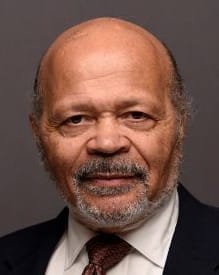
by Oscar Clayton
It is not news to Americans of color that we live in a social environment that is greatly hostile to our very existence.
We do not need to go all the way back to 1619 to find numerous examples of hate-driven obstacles being put in ourpaths, and then that same hate fueling our demonization for not overcoming those obstacles.
The lynchings of yesteryear with rope and torch have given way to state-sanctioned murders by uniformed assassins euphemistically referred to as “law enforcement officers” in the execution of “no-knock” police raids – often into the wrong home of an unsuspecting and innocent victim.
These atrocities do not flourish without the social foundations that provide the fertile soil of hatred and being constantly revitalized with torrential downpours of malignancy.
Despite the protestations of many whites, blind to these injustices and who proclaimed the election of Barack Obama to the U.S. presidency as evidence that America had entered into a “post-racial” era, the hatred towards people of color that gave us lynching is still here, and it keeps on giving.
One need not even scratch the surface of America’s bigotry to expose this hate; it is all around us and in plain sight.
When the feature film “The Hunger Games” was released in 2012, some white fans of the trilogy that was published in book form four years earlier vociferously objected to the fact that one of the major characters in the film was a young girl of color.
The book and the film tell a tale of heroic youths struggling against the rulers of an evil and dystopian society. Many white readers of “The Hunger Games” envisioned the character Rue as a young white girl, even though the author of the book, Suzanne Collins, made it clear that Rue was a young girl of color from a geographical area known as “District 11,” which was inhabited predominantly by people with “dark hair” and “dark skin.”
Being confronted with the visual image on screen of a young biracial actress, Amandla Stenberg, representing Rue, these white fans began to spew their vitriol. Some argued that the filmmakers had misinterpreted Suzanne Collins’ characterization of Rue. One fan went so far as to state publicly that if he had known that Rue was Black, he would not have found her death in the story to have been sad. Yes, this bigot admitted to having been sad when Rue died in the novel, but when he realized that Rue was Black, he “wasn’t as sad.” Can there be a more honest testament by a white person that Black lives do not matter?
Given the murderous behavior by white Americans towards people of color, denial of the hatred those white Americans have for us borders on being a mental disorder and threatens not only our safety but our very existence.
While we are drowning in a mire of racial hatred extending back more than 400 years, we are now faced with feverish attempts to erase the evidence of the offenses against us. White supremacists and racially motivated bigots have demonized a high-level academic exercise known as “critical race theory” to create a boogeyman to rally their followers in opposition to equality and justice in America. These bigots, in their zealous efforts to obliterate history and the evidence of this country’s racism, have begun banning books from schools and public libraries that provide a true account of the racial hatred that has been given over the centuries.
One of the most banned books in the past few years is “The Hate U Give.” This novel was published in 2017 and released as a movie in 2018. It deals with the unwarranted police shooting of an unarmed Black youth during a traffic stop and the impact of that tragedy on the city where it happens. “The Hate U Give” portrays the various perspectives about the event and the disparity between the degree of concern displayed by the locale’s white and Black populations.
The film version also starred Amandla Stenberg, this time portraying Starr Carter, the friend of a Black youth who witnesses his murder by the police. She is also a Black student at a predominantly white high school trying to code switch between her white schoolmates and her Black neighborhood.
In the responses of bigoted whites to Amandla Stenberg’s portrayal of Rue in “The Hunger Games” and the vehement response by bigots to the book “The Hate U Give,” we have a synthesis of the hate white America gives to people of color. And the performances by Amandla Sternberg puts them side by side. In the one instance, she is condemned by white bigots for trespassing into the white space of heroic “white” youth fighting against oppression. In the other, the narrative of Black youth fighting against their oppression is declared to be inappropriate for the eyes of young people.
To many fans of “The Hunger Games,” the narrative was a white space, and Blacks are rarely allowed to appear in portrayals of the struggles for justice. Social media posts made it very clear that Amandla Stenberg was not welcome in this narrative.
On the other hand, white bigots do not want people of color to tell our own stories of heroic struggle against oppression. This is because our struggle against oppression in America has been mostly against white supremacy. These bigots argue that their children are too fragile to know of the injustices our children suffered at the hands of those who oppress us.
The hate white bigots have given us over the years keeps on giving. It must be recognized as hate, and it must be called out as hate. This hatred will never be overcome unless we deal with it for what it is.Oscar H. Blayton is a former Marine Corps combat pilot and human rights activist who practices law in Virginia. His earlier commentaries may be found at https://oblayton1.medium.com/
Oscar H. Blayton, Attorney At Law

